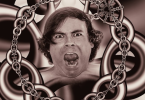Living in Fear and Going No-Contact
For many victims of narcissistic abuse, going no-contact is a survival mechanism. When someone is threatened, manipulated, and emotionally harmed over time, cutting ties becomes the only way to reclaim personal safety. For example, my own experience with my narcissistic father involved threats that forced me into hiding. After 12 years of no contact, I often wondered how I would feel when he passed.
No contact is not a decision made lightly. It’s a series of choices over time—moments where you choose not to engage, protect your boundaries, and prioritize your well-being. It means missing family events, birthdays, funerals, and countless other moments that go unwitnessed. These bricks of separation, laid one by one, create an emotional fortress that keeps the abuser at bay but also isolates the victim.
When You Don’t Get the Call
In many cases, when a narcissist dies, those who have gone no contact may not even be informed. This was my experience my siblings, who had my contact information, chose not to tell me when my father was dying. Instead, I received a text a day after his death. There was no opportunity to say goodbye, no moment of closure at his bedside. And when I tried to reach out, my calls were ignored.
This kind of betrayal adds another layer of hurt. It’s not just the narcissist who wounds you, but those around them family members who enable their behavior or choose loyalty to the abuser over their sibling.
Read More:
5 Narcissism Code Words You Need To Know
5 Tell Tale Signs Of Narcissistic Collapse
Continue reading on the next page
Sharing Is Caring!





